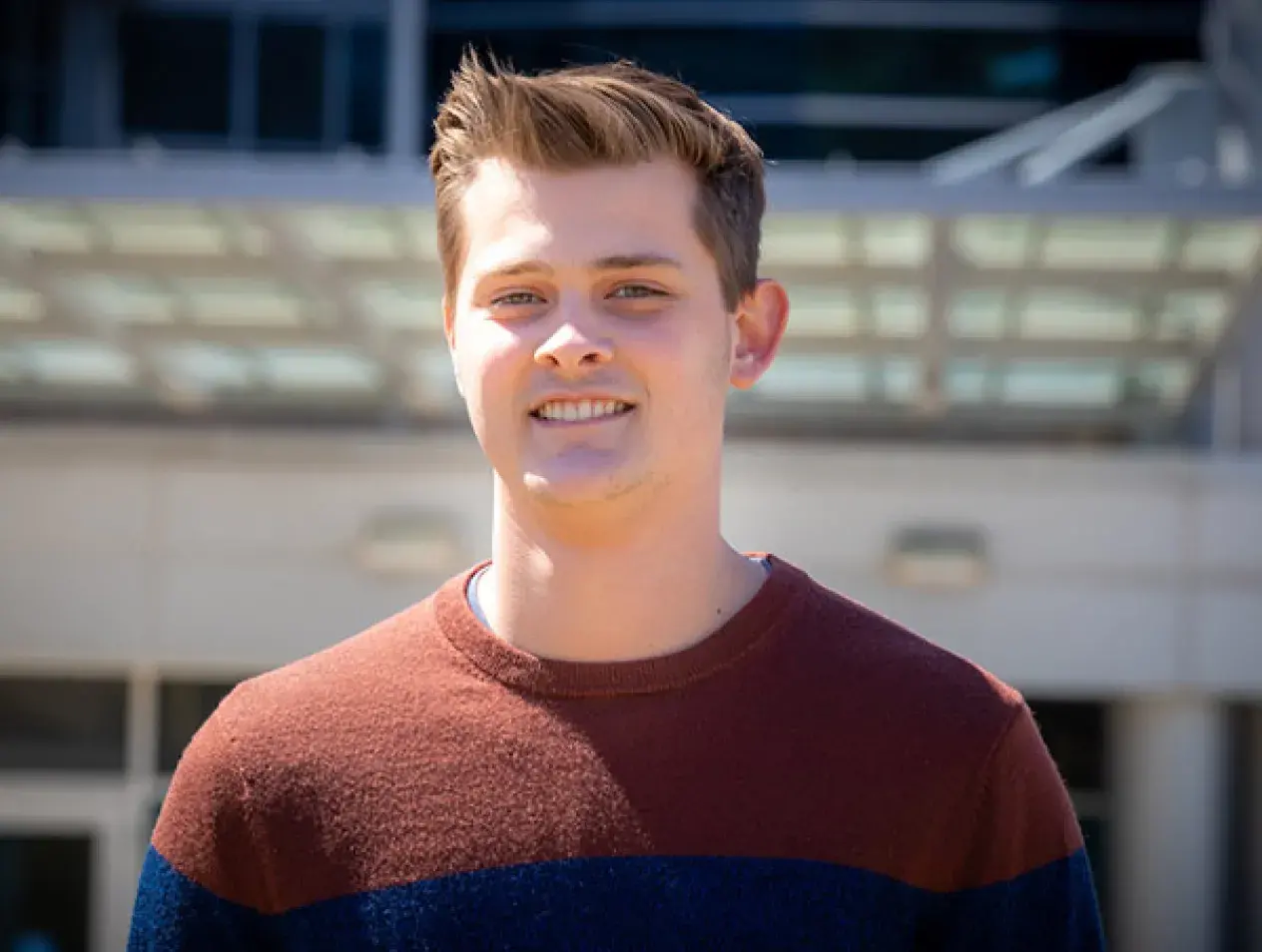
Jack Diers
Jack Diers, whose research focuses on hearing loss, is a 2023 Goldwater Scholar.
Jack Diers works in the laboratory of faculty member Jian Zuo, PhD. There, he discovered his passion for research, which focuses on restoring and regenerating hearing loss. Here’s what he had to say about his experience at Creighton.
Where are you from?
Fremont, Nebraska.
What is your major and graduation year?
I’m a neuroscience major and philosophy minor graduating in 2024.
What kind of research are you doing?
My most recent work has focused on the epigenetic regulation of hair cell regeneration. Hair cells are the sensory receptors of sound, and their loss results in permanent hearing loss. We are looking at genetic therapies to regenerate hair cells in mice as a potential treatment for hearing loss. My project in particular looks at the role of the histone demethylase Lysine Specific Demethylase 1(Lsd1) and how it might play a role in preventing hair cell regeneration in mammals. I’ve worked on numerous other projects such as using EGFR inhibitors as protective agents against hearing loss.
Why is research important to you?
Research at Creighton has been a transformational experience for me. Through research, I discovered my passion for developmental biology and the fundamental need for academic research in the advancement of science and medicine.
What are your plans after graduating?
After graduation, I plan to pursue a PhD in developmental biology and continue exploring my love for regeneration. I’d like to eventually lead a lab researching early mammalian development and the regulation of pluripotency.
How will your research experience help you reach your goals?
During my time in the lab, I discovered my passion for research and a sense of fulfillment in the work I do. As a result, I’ve decided to pursue research as a career and will work toward my PhD in developmental biology after graduating from Creighton.
Would you recommend research to incoming students?
Absolutely. Conducting research is a great way to learn how to think critically, creatively and independently. Furthermore, it’s an opportunity to help solve real-world issues like hearing loss. Along the way, you’ll meet some wonderful individuals—both classmates and professors—and hopefully have some fun with it.


